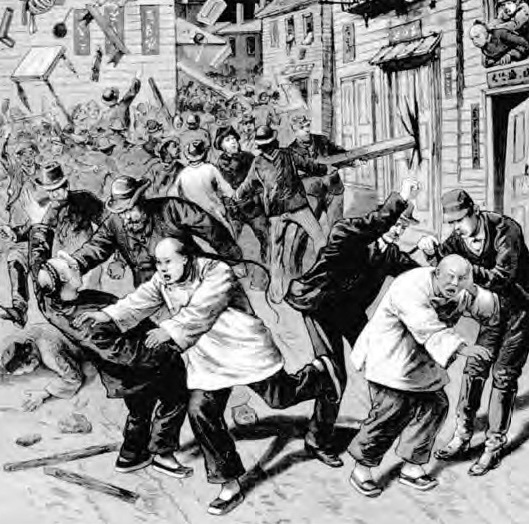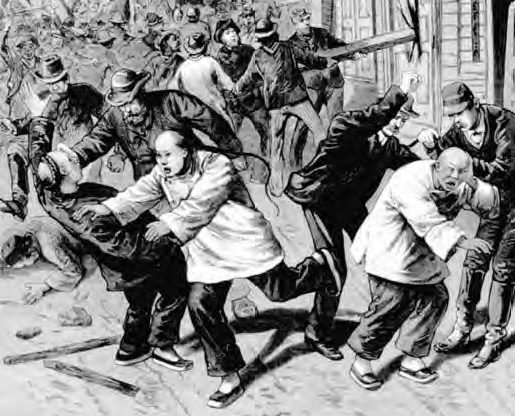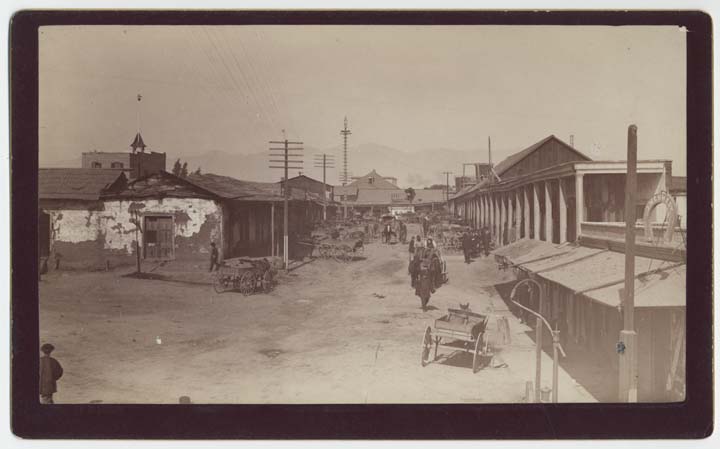One the ugliest and most violent attacks on any group of people in California takes place on October 24, 1871. The “Los Angeles Massacre” or “Chinatown War” is the largest mass lynching in American history and leaves 18 people dead. Of the 18 deaths, 15 are Chinese residents hanged by a mob of 500 Angelenos – almost one-tenth of the city’s population – whose rioting results in the death of nearly 10 percent of the city’s Chinese population of 172.
The “massacre” occurs on Calle de los Negros, the city’s center of vice where roughly half the city’s Chinese population lives. (“Negro Alley” is named not for African Americans but for the dark-skinned Spaniards who originally lived there. It’s now Los Angeles Street.)
Chinese “companies” or tongs are fighting over the kidnapping of a woman, Yut Ho. Hearing gunshots, one of the city’s six police officers arrives on the scene and is injured by a second round on gunfire.

A former saloon owner named Robert Thompson comes to the aid of the wounded police officer. He pursues the shooters and, despite being warned by a bystander, fires his pistol into the building where the Chinese gunman are holed up. Thompson is killed by the returning fire.
Word spreads that “whites” are being gunned down by the Chinese. This unleashes a mob that loots and riots throughout Chinatown.
Nearly every Chinese resident of the city is assaulted or robbed. Fifteen are hanged. Only one of those hanged is involved in the incident that sparked the riot.
The barbaric assault garners national media attention — the first Los Angeles receives.
Afterwards, the grand jury accuses two dozen men of murder. Ten are tried. Eight are convicted of manslaughter but have their convictions overturned on a technicality. There is no retrial.

